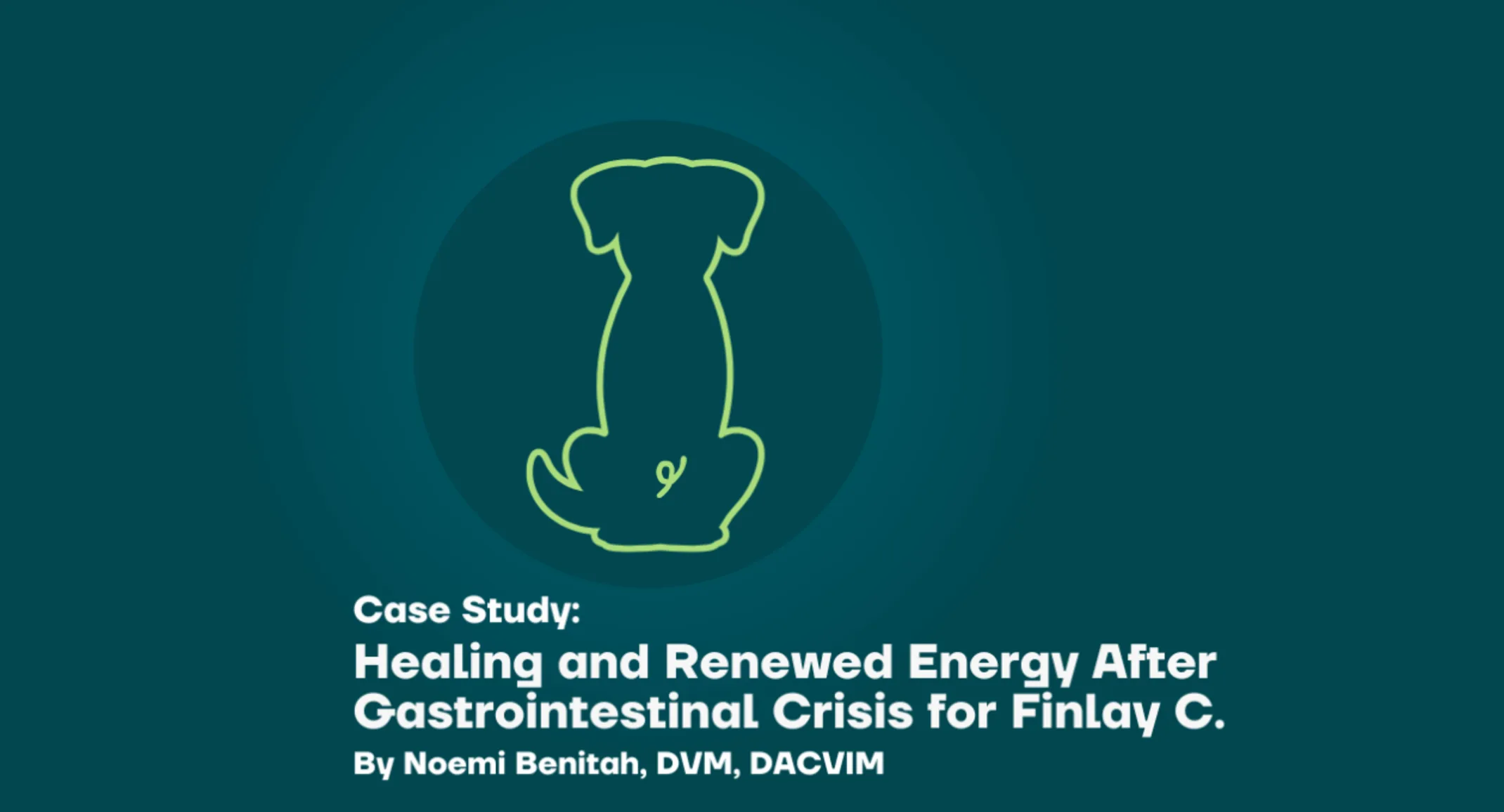Veterinary Case Study: Finlay
August 13, 2025 · Case Study

Introduction
Finlay Caban, a 10-year-old Pitbull mix, faced a gastrointestinal crisis characterized by persistent vomiting, diarrhea, and lethargy. Initially treated by his primary veterinarian for suspected pancreatitis, Finlay’s condition failed to improve with supportive care. As his symptoms progressed, his owners sought specialized internal medicine care at Peak Veterinary Referral Center. There, under the expertise of Dr. Noémi Benitah, advanced imaging revealed a gastric foreign body requiring both endoscopic and surgical removal. Finlay’s case underscores the importance of timely referral, comprehensive diagnostics, and collaborative care in managing challenging gastrointestinal disorders in veterinary patients.
Presenting Complaint
Finlay was initially presented to his primary veterinarian in late April 2025 for acute vomiting and diarrhea. Given his history of gastrointestinal sensitivity, supportive care was provided, and diagnostic bloodwork was submitted. Results showed high serum amylase and canine pancreatic lipase (cPL), suggestive of pancreatitis. He was prescribed maropitant citrate, an anti-nausea medication, and fed a bland diet of poached tilapia and white rice.
Despite treatment, Finlay’s symptoms persisted into the following week, with ongoing vomiting, diarrhea, poor appetite, and lethargy. Radiographs of the chest and abdomen showed no obvious obstruction, and he was diagnosed with gastroenteritis.
Referral & Diagnosis
As Finlay’s clinical signs progressed without resolution, an abdominal ultrasound was recommended. On May 7th, 2025, he was evaluated at Peak Veterinary Referral Center by Dr. Noémi Benitah, a specialist in internal medicine. Based on this imaging modality, it was suspected that Finlay had a gastric foreign body that could not pass on its own, requiring immediate intervention. The type of foreign material could not be determined by the owner or the imaging.
Surgical Intervention
A same-day gastroscopy retrieved 175 grams of long grass blades causing a pyloric obstruction. However, additional material remained in the stomach, prompting immediate exploratory surgery by Dr. Kurt Schulz, a specialist in surgery. An additional 154 grams of grass was removed from the stomach and proximal jejunum via gastrotomy and enterotomy. Liver biopsies were also taken to investigate small hypoechoic nodules seen on ultrasound. Finlay recovered well and was hospitalized overnight for monitoring. His nausea resolved, appetite returned, and he was discharged with antibiotics, probiotics, and sucralfate to protect and support his gastrointestinal tract.
Follow-Up and Prognosis
Liver histopathology results were consistent with copper storage hepatopathy, with toxic copper accumulation in the liver despite Finlay being asymptomatic and having normal liver parameters. Early detection has enabled proactive management with a low-copper diet, vitamin E, and SAMe (S-Adenosylmethionine) with milk thistle to support liver function. At his May 21st recheck, Finlay was thriving, with a follow-up visit scheduled in two months.
Conclusion
This case underscores the importance of advanced imaging and timely intervention in persistent gastrointestinal illness. Thanks to the expertise of and collaboration between Dr. Benitah, Dr. Schulz, and the Peak team, Finlay made a full recovery and continues to do well at home.
About the Hospital
Peak Veterinary Referral Center is a leading veterinary hospital that provides veterinary medical services in the specialties of Cardiology, Diagnostic Imaging, Internal Medicine, Oncology, and Surgery. We also offer a 7-day-per-week veterinary Urgent Care service to support the non-critical medical needs of pets in the greater Burlington, Vermont area and beyond. To learn more, visit our website at www.peakveterinary.com.
